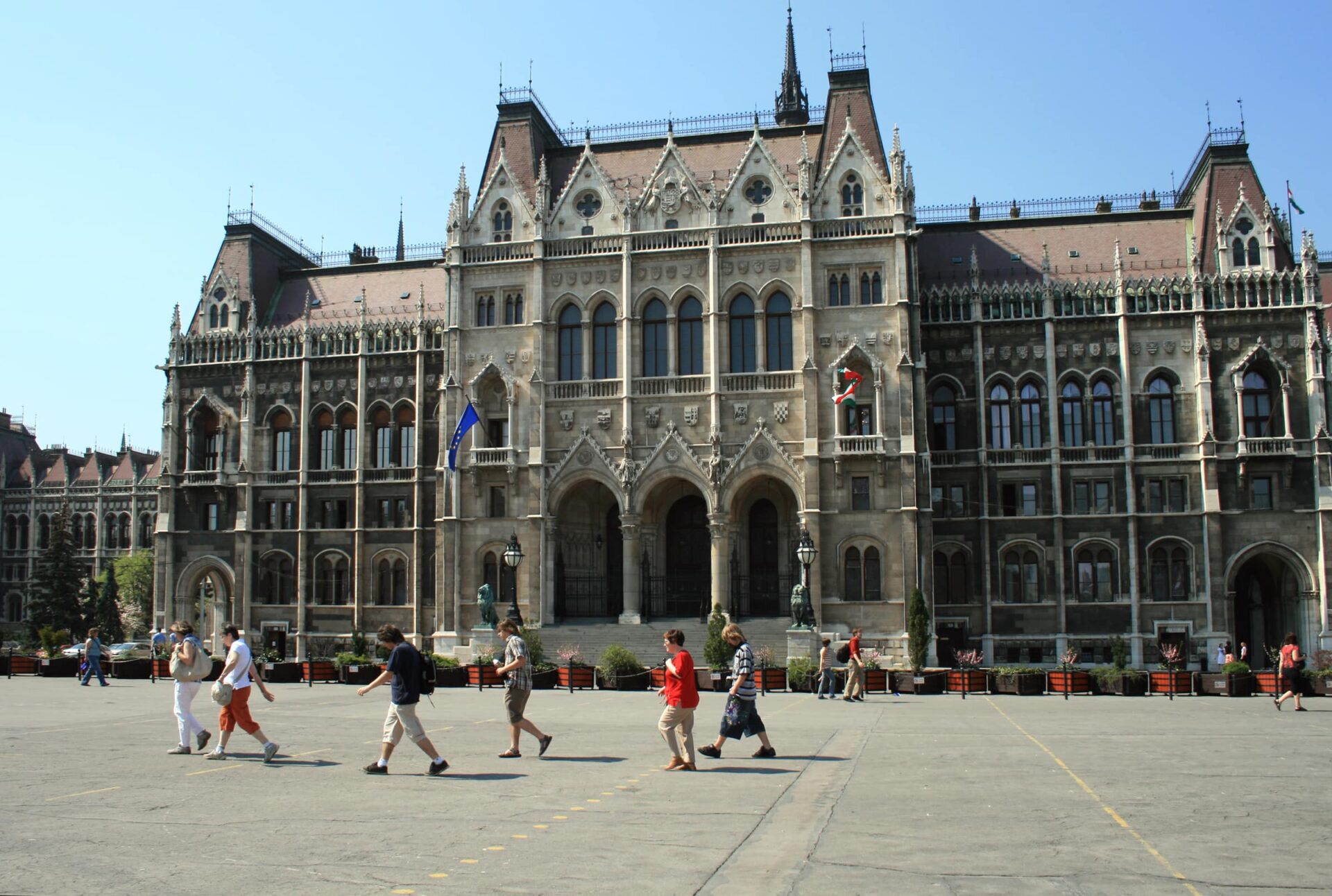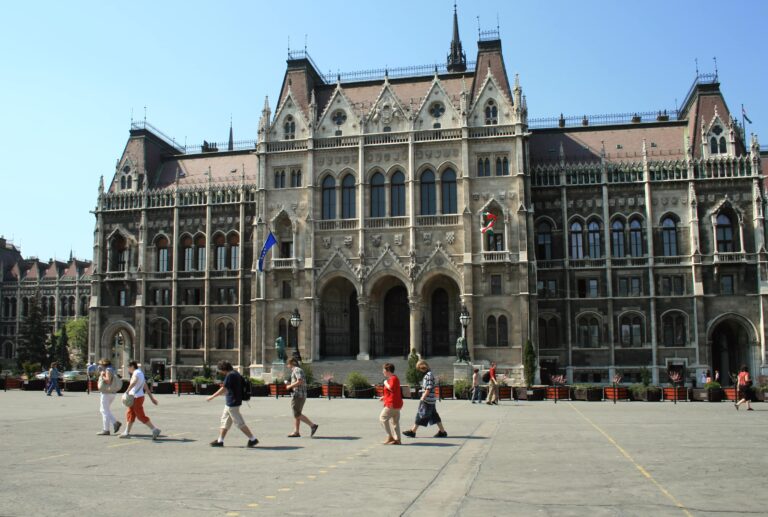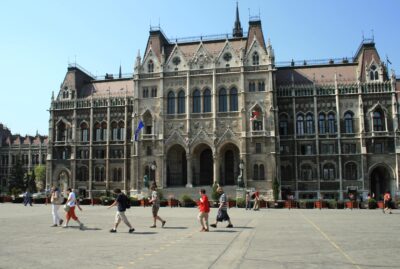Ahead of the 2022 general election, the Fidesz government of Prime Minister Viktor Orbán has continued its efforts to systematically erode media pluralism, muzzle what is left of the independent press and manipulate the market to further entrench a dominant pro-government narrative – writes International Press Institute (IPI) in a new report, Media Freedom in Hungary Ahead of 2022 Election, which follows a press freedom mission to Budapest carried out by IPI and its Executive Board in February 2022. We are publishing its key findings.
Ahead of the 2022 general election, the Fidesz government of Prime Minister Viktor Orbán has continued its efforts to systematically erode media pluralism, muzzle what is left of the independent press and manipulate the market to further entrench a dominant pro-government narrative.
To achieve this unprecedented level of political control over the country’s media ecosystem, Fidesz has pursued the most advanced model of media capture ever developed within the European Union. This process has involved the coordinated exploitation of legal, regulatory and economic power to gain control over public media, concentrate private media in the hands of allies, and distort the market to the detriment of independent journalism.
The engine of this media capture has been a network of proxies: state-dependent businesses and oligarchs close to the prime minister who have acquired many of the major television, radio and print media, in many cases from foreign owners and multinationals who exited the country. These acquisitions were frequently facilitated by politically driven regulatory decisions and loans from state-controlled banks. Many media brought under Hungarian ownership were either converted into pro-Orbán mouthpieces or closed.
Most Fidesz-allied oligarchs later handed over or donated their holdings to a pro-government media conglomerate, The Central European Press and Media Foundation “Közép-Európai Sajtó és Média Alapítvány” (KESMA). This foundation contains more than 500 different media outlets and is controlled by former Fidesz MPs and allies of the prime minister. KESMA is the dominant player in Hungary’s media ecosystem and essentially acts as a holding company for a pro-government media empire, which is used to shape public opinion and insulate citizens from challenging or critical reporting ahead of the election.
The economic lubricant for Fidesz’s media capture has been exorbitantly large state advertising budgets, which for years have been instrumentalized to warp the media market in favour of a dominant pro-government narrative. With no rules in place to prevent such abuse, these resources continue to be pumped into media echoing the party line while financially starving critical journalism.
High levels of political control over the system for media regulation has been central to the erosion of media pluralism. The Fidesz-appointed Media Council has used its oversized power over the media market to arbitrarily block and deny broadcast licenses, forcing critical voices such as Klubrádió off the airwaves. Meanwhile, the country’s competition watchdog has blocked mergers of independent media while approving market-distorting fusions of pro-government outlets, further facilitating the concentration of media ownership in the hands of companies in Fidesz’s business circle.
Hungary’s public service media have been deformed into an audivosual propaganda tool of the ruling party. Editorial independence is virtually non-existent for news programming at the public radio and TV, which uncritically amplify Fidesz’s messaging. During the 2022 election campaign, the public broadcaster has provided unbalanced and unprofessional news coverage. The leader of the opposition has received zero airtime on the public television. Political control over the state news agency is extremely high, with the prime minister’s press office explicitly dictating coverage.
While independent media still exist in Hungary, the government’s market-distorting practices and systematic discrimination limit their reach and impact as well as their financial sustainability. When corruption scandals are unearthed by investigative journalists, the findings are ignored by the public media and state news agency or drowned out by pro- government media. Ownership by Fidesz’s business allies of all regional print television and radio means citizens living outside the cities have had no access to independent news and information ahead of the election, except online. To further isolate these media, the government continues to divide the journalistic community down political and ideological lines, portraying journalists as purely “political actors”.
Independent media face systematic discrimination in terms of accessing public information. This restrictive climate worsened during the Covid-19 pandemic, as independent journalists were banned from hospitals and the government passed a chilling new law criminalizing what authorities deemed to be misinformation aimed at undermining the fight against the virus. Disturbing evidence of state surveillance of Hungarian journalists and media workers using Pegasus spyware underscored the authorities’ perception of critical journalists as “enemies of the state”.
With control over domestic media largely solidified, in recent years Fidesz’s business allies have expanded their media empires beyond Hungary’s borders. Though results have so far been limited, these acquisitions point to a coordinated effort to control the flow of content and communication in the region and promote Fidesz’s wider illiberal agenda across Europe.
The model of domestic media control in Hungary has been designed in such a way as to give Fidesz plausible deniability against accusations of meddling. By having its loyalist- filled Media Council reject the license renewal for Klubrádió, the government could throw up its hands and deny accusations of interference. By having business cronies acquire independent media, Fidesz can argue the complexion of the media landscape is a result of purely market forces. By having state advertising budgets distributed via separate agencies, it can deny influence over decisions. In this way, responsibility for attacks on independent journalism have been artificially shifted away from the ruling party.
Seeing the success of this arms-length model for muzzling critical media, in recent years elements of Fidesz’s model for media capture and control have increasingly been adopted by other EU countries, with adaptations to suit the local media market and political environment. Despite the clear risks to democracy domestically and within Europe, Hungary has so far faced no major repercussions from the EU for its systematic erosion of media pluralism and freedom. This points to an urgent need for additional safeguards within the European Union’s democratic architecture and a strong Media Freedom Act to help protect independent journalism within member states and defend core EU values.
During the mission, Mr. Kovács dismissed all the concerns over media pluralism, and independence raised by IPI and said that media freedom was “alive and kicking” in Hungary. Mr Márki-Zay pledged to improve the situation for media to create a level playing field. He also pledged to reform the public broadcaster in line with international standards, address the state advertising of media, give full access to journalists to officials and information and committed to a thorough investigation into abuses of Pegasus spyware against journalists. Mr. Karácsony also said the “main priority” would be to take steps to help foster a diverse and pluralistic media ecosystem, including an independent public broadcaster.
While unravelling over a decade of media capture in Hungary will be a complex and difficult task, it is vital for protecting the integrity of the country’s democracy. The government must have a long-term strategy for restoring independence and pluralism based on democratic procedures. At the same time, immediate steps must be taken to stop illiberal practices in the media market. Reform of the public broadcaster, ending the abuse of public advertising and other state resources, and the depoliticization of regulatory bodies are priorities for helping re-establish fair market conditions and fostering a sustainable and pluralistic media ecosystem.
Read the full report: Media Freedom in Hungary Ahead of 2022 Election,







